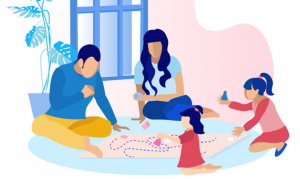One of the most painful and frustrating experiences for a parent could be watching his or her child do self-harm.
The behavior is not uncommon now. I was utterly caught unprepared when one client divulged to me that she did self-harm because majority of her classmates do so!
This is truly disheartening. It shows that our teenagers are using maladaptive coping mechanisms to address their stresses and challenges. And to a parent, this behavior is bewildering and altogether scary.
Clinically referred as non-suicidal self-injury, self-harm is the act of physically inflicting pain on oneself without the intention of dying.
How do they hurt themselves? Most of them intentionally cut their skin using a blade or cutter. Some scratch themselves and actually peel off the subdermal tissues. I have one who bangs her head on the wall or on objects that she holds. There are reported cases of burning oneself or embedding objects under the skin, but I yet have to meet one (I hope not).
Now, the big question is WHY? Why do they do this? Most common answers vary from; “cutting makes me feel again”, “I can release my stress”; or “I am influenced by my friends and what I see on YouTube”.
Studies add some more reasons like, to cope with anxiety or negative feelings, distract or purify themselves, express feelings, cope with a history of trauma, to feel in control of body and mind, or for no reason at all!
But looking closely, self-injurious behavior is related with various mental problems such as depression, substance abuse, borderline personality disorder, sexual and physical abuse in childhood, eating disorders, and anxiety.
While those who self-injure may not be suicidal at all, the act can become habitual and hard to stop. And it can become an “in” thing in their peer group and influence the other members. The prevalence of self-injurious behavior is rising and social media is one of the main culprits of its spread. The alarming thing here is that only a few of these teenagers seek medical attention even if it is very necessary.
As a parent, what can we do? How can we help our adolescent who is struggling with a self-injurious behavior?
Be Calm. Parent, you must understand that your adolescent needs you and your emotional stability. Stay emotionally connected with your youngster. Do not judge or blame her for this may trigger more unwanted feelings that can lead them to continue engaging in self-harming behaviors.
Educate Yourself. It is very important my dear parent for you to know the nature of this behavior, its causes, as well as treatment. There are may avenues by which you can access reliable information on this issue. Or better still, consult a trusted mental health professional.
Get yourself and your child into therapy. As of the moment, there is no pill to cure this behavior. The only available treatment is psychotherapy to explore triggers and other disorders related to it. Finding a good therapist is a trial and error process. It will take some time, but eventually, you will find the right “fit” for your child and you.
Be patient. Do not blame yourself for this. We tend to blame ourselves for anything that happens to our child. But let us remember that a psychological disorder emerges due to multiple underlying factors. Yes, parenting may be one of these but necessarily not the only cause.
These are challenging times and we as parents need to keep up to make sure that we can be of support to our growing children.





Be First to Comment